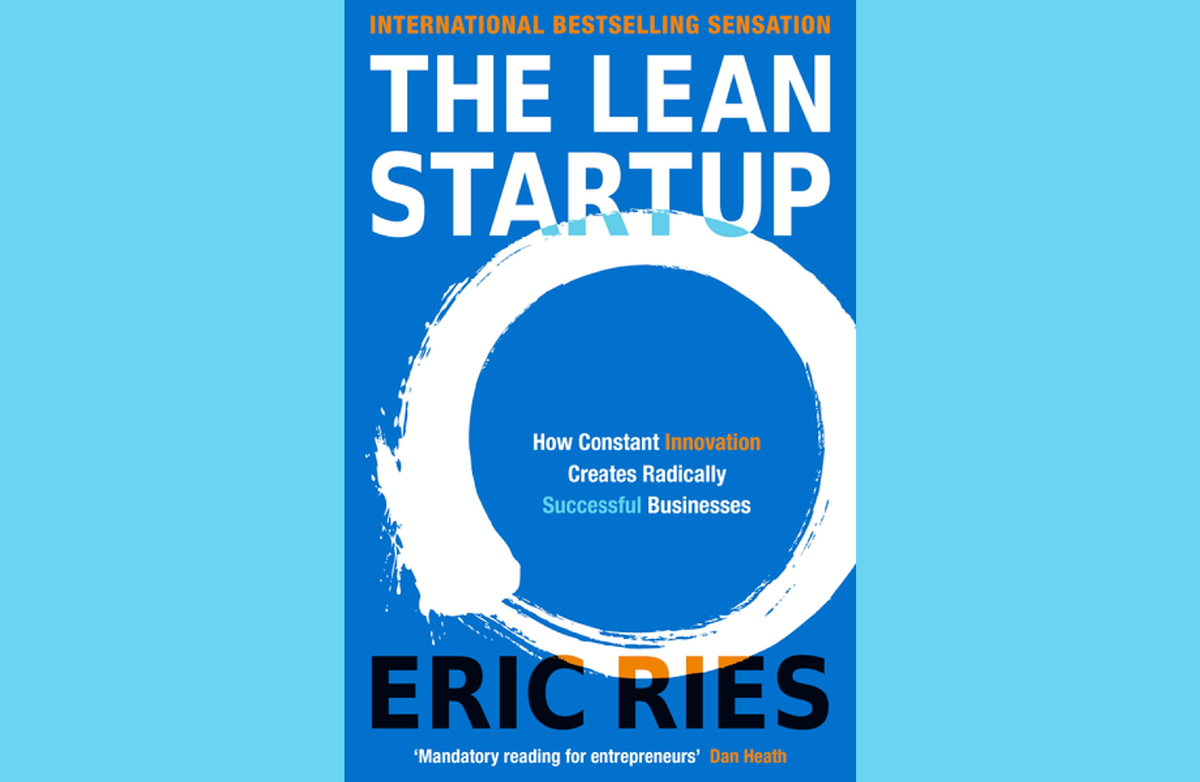3 Entrepreneurial Books To Help Dream Big And Energize”
Discover key strategies for launching your dream business with insights from "The Lean Startup," "The $100 Startup," and "Feel the Fear... and Do It Anyway." Learn to innovate, start small, and conquer fear.

Starting a business is thrilling and filled with its fair share of challenges and victories. It’s a path requiring passion, vision, a strategic mindset, and the courage to face the unknown. For entrepreneurs ready to embark on this journey, armed with knowledge and determination, here are essential insights from three transformative books that promise to guide, inspire, and prepare you for the road ahead.

Embrace the Lean Startup Methodology
Eric Ries’s “The Lean Startup” introduces a systematic, scientific approach to creating and managing successful startups in an age when companies must innovate more than ever. Here are the key takeaways:
- Build-Measure-Learn Loop: This fundamental feedback loop helps you iterate your product based on customer feedback, minimizing the time and resources spent on products that don’t meet market needs.
- Minimum Viable Product (MVP): Launch your product with enough features to gather validated customer feedback. This strategy reduces risk and helps pivot or persevere with clarity.
- Validated Learning Over Vanity Metrics: Focus on learning what drives customer engagement and business growth rather than misleading metrics that don’t contribute to long-term success.
- Pivot or Persevere: Based on customer feedback and validated learning, decide whether to change direction (pivot) or stay the course (persevere).
Eric Ries Quote: “The only way to win is to learn faster than anyone else.”

Find Your $100 Startup.
Chris Guillebeau’s “The $100 Startup” redefines what it means to be an entrepreneur. You don’t need a business degree or a hefty bank account to start something meaningful:
- Convergence: Identify the intersection of what you love to do and what others are willing to pay for. This sweet spot is your golden ticket to creating a fulfilling and profitable business.
- Microbusiness Revolution: Embrace the power of starting small. Many businesses in the book began with modest investments but grew through ingenuity and passion.
- Action Beats Planning: While planning is important, action is crucial. Start small, learn fast, and adapt quickly. Success comes from progress, not perfection.
- Value Creation: At the heart of every successful business is a value proposition that resonates with its customers. Focus on how your product or service improves lives.
Chris Guillebeau Quote: “Value is created when a person makes something useful and shares it with the world.”

Overcoming Fear with Susan Jeffers
In “Feel the Fear… and Do It Anyway”, Susan Jeffers addresses the elephant in the room - fear. Her insights are invaluable for entrepreneurs who face the uncertainty of starting a new venture:
- The Truth About Fear: Fear is a natural response to moving out of your comfort zone. Acknowledge it, but don’t let it control your actions.
- The Five Truths About Fear: These truths, including “The fear will never go away as long as I continue to grow,” are potent reminders that fear is a companion of growth.
- Empowerment Through Decision-Making: Making decisions, even small ones, builds confidence and reduces fear. Each choice is a step towards taking control of your entrepreneurial journey.
- Transform Pain into Power: Shift from a mindset of helplessness to one of action and empowerment. Your perception of fear and challenges dictates your ability to overcome them.
Susan Jeffers Quote: “The fear will never go away as long as I continue to grow.”
Compare and Contrast: Unifying Themes and Diverse Strategies
While each book presents unique insights and methodologies, there are unifying themes and diverse strategies that emerge when we compare and contrast their core teachings:
Action vs. Planning: All three authors agree that action is more important than extensive planning. Ries advocates rapid prototyping and testing through the MVP concept; Guillebeau champions starting small and learning on the go; and Jeffers encourages taking action despite fear, viewing it as a growth mechanism.
Learning from Failure: Ries and Guillebeau emphasize learning from failures as an integral part of the entrepreneurial journey. Ries’s validated learning and Guillebeau’s action-oriented approach both suggest that setbacks are not to be feared but are opportunities for growth and pivoting.
The Role of Fear: Jeffers focuses explicitly on overcoming fear, while Ries and Guillebeau address fear indirectly by embracing failure and uncertainty. All three recognize fear as an inevitable part of creating something new and advocate for facing it head-on.
Value Creation: Guillebeau and Ries both highlight the importance of creating value as the core of a successful business. While Guillebeau focuses on the convergence of passion and market needs, Ries emphasizes the iterative process of building a product that people want.
By synthesizing these insights, entrepreneurs can confidently navigate their journey, embracing each challenge as an opportunity for growth.
Conclusion: resilience, adaptability, and a proactive approach
Launching your dream business is an adventure that demands resilience, adaptability, and a proactive approach. The insights from these three books provide a solid foundation for understanding the complexities of starting a new venture. They encourage you to embrace lean methodologies, start with what you have, and face your fears with courage.
Remember, the path to entrepreneurial success is not linear. It’s filled with lessons learned, pivots, and unexpected victories. With the right mindset and strategies, you can confidently navigate this journey. Let these books be your guide as you transform your vision into reality.
Daily Habits for New Entrepreneurs
- Set Clear, Achievable Goals: Start each day by setting goals that align with your long-term vision. Break them down into actionable steps.
- Prioritize Tasks: Identify the most critical tasks that need your attention and tackle them first. Use tools like the Eisenhower Box to prioritize effectively.
- Embrace Continuous Learning: Dedicate time each day to learning. Whether you read articles, listen to podcasts, or take courses, keep expanding your knowledge.
- Network Actively: Allocate time for networking. Building relationships with other entrepreneurs can provide support, insights, and opportunities.
- Practice Mindfulness: Incorporate mindfulness exercises into your routine to reduce stress and enhance focus. Even a few minutes of meditation can make a difference.
- Exercise Regularly: Physical activity is crucial for mental health and productivity. Find an exercise routine that fits into your schedule and stick to it.
- Reflect Daily: End your day with reflection. Assess what went well, what didn’t, and how you can improve tomorrow.
- Seek Feedback: Be open to feedback and actively seek it from customers, mentors, and peers. Use it to make informed decisions and improve your business.
- Stay Customer-Focused: Regularly inquire about your customers’ needs and experiences. Their insights are valuable for guiding your product or service development.
- Cultivate Resilience: Embrace setbacks as learning opportunities. Develop the resilience to bounce back from failures, using them to fuel your growth and determination.


